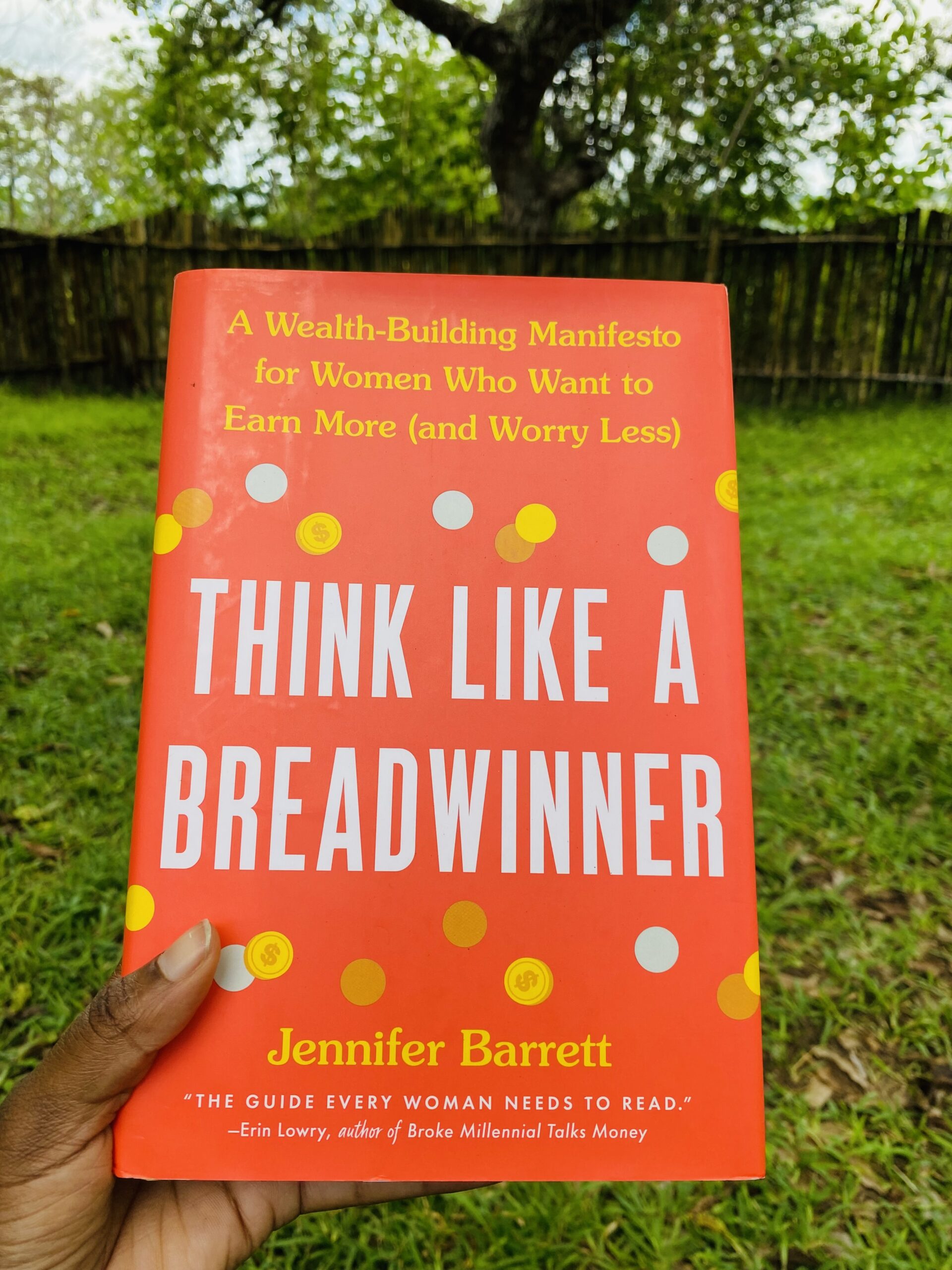
5 Money Lessons I Learned in My 20’s
During my podcast episode with Kenyan on Fire — you should really catch the episode on my podcast — I mentioned the importance of sharing our experiences with money. Of course, everyone has a unique relationship and experience with money. But we can learn from them. We learned a lot from Kenyan on Fire and every other individual who shares their experiences. So, let me talk about some money mistakes I made in my 20s. Hopefully, if you are in your 20s (hi, bro), you can learn a thing or two.
5 Money Lessons I Learned in My 20’s
1. Advantages of Budgeting, Setting Financial Goals, and Always Having an Emergency Fund
At the start of my career, I was barely getting by. I had a student loan, a Sacco loan I had taken to pay my final semester fees and accommodation, and a black tax on my back. With a starting salary of $400, before tax, and living in the city, sometimes this was barely enough.
Still, I could have made better decisions, like budgeting, having clear financial goals and always saving for emergencies. Yes, I had a savings account in a Sacco. But I was always shelving this money for the long term, hoping I would borrow against my savings later for investments. I do not remember having savings accounts for short-term goals; not even an emergency fund. And I just winged it when it came to financial goals.
Do you know how that ended? Spending on things I had yet to budget or plan for. I also realise that it led to spending more than I was earning. There were months I needed more to cover expenses, so I turned to digital loans.
Plus, on months when I had balances carrying forward, the money was wasting away in the bank. It may not have been much. But if I had put that money in an MMF, it would have earned me a return and prepared me for emergency expenses.
Lesson: Start budgeting early so you can grow into the habit. By the time you hit your 30s, you will not be struggling to build a budgeting and saving habit. Trust me, it is a lot of work and takes time. It is also important to have goals. For example, what do you want to achieve in the next year, two years, five years, etc.? By the end of the year, you may want to reward yourself by taking a vacation. That’s your goal, so start saving and planning for it. You will have a more meaningful and less stressful holiday because you planned and prepared for it financially. The other lesson is always to have an emergency fund, regardless of your short or long-term goals. It will save you from getting into unnecessary debts or pinching into your long-term savings and investments when the unexpected happens.
2. The Importance of Saving and Investing a Percentage of My Salary
As much as I did not have an emergency fund or a budget in place, one thing I did diligently was to save money. Besides the retirement savings, I made a point of depositing something in my Sacco account every payday. It might not have been much. Or planned for short-term goals and emergencies. But I knew I could borrow against my savings or liquidate the account if I was pressed for cash. And that day came. I was glad I had some money to rely on when it did.
Of course, I never thought that day would come. At the back of my head, the money would always go into my long-term goals. I had no idea what those were, but I knew I needed to keep saving. Still, I am glad I had something to fall back to.
Lesson: Always save a percentage of your salary and do it religiously. The recommended amount is 20% of your paycheck. However, if other obligations press you, start small and keep increasing that amount. Another lesson is splitting those savings into short- and long-term savings and investment accounts. Start with short-term goals, like building an emergency fund. Then, have sinking funds for your other dreams, like purchases and experiences. Finally, have investment accounts, such as a CDS account for shares and bonds, real estate investment and mutual funds.
3. Managing My Emotions Around Money and Black Tax
I started getting better with money in my late twenties and early thirties. Actually, scrap that. I have always been good with money. I hustled, helped out and saved the little I could while still in school. I managed a corporation’s treasury activities. And this might have been a work thing that I needed help to replicate in my personal finances. It happens.
However, when I think about it now, there was more to living paycheck to paycheck. First, it was the low salary amount with little increments over the years. When that significant boost in salary hit, I could do more things I wanted, like saving more. But it was almost too late, and the pandemic hit us. But I want to concentrate on something else for this lesson.
The second issue was my emotions around money and the management of the black tax. I know there was a responsibility here and there. I tried to ensure I boosted my people whenever they needed it. It is not like they needed help all the time. However, I felt obligated to help so often. When the need to go the extra mile rose, I had all sorts of emotions — helplessness, sadness, despair, defeat — any negative emotion you can imagine that makes you feel like the whole world is collapsing in on you.
So most of my financial decisions were driven by these emotions and a tinge of Black Tax. Unfortunately, I made some bad decisions because of these, like liquidating my Sacco savings and getting into debt.
I tried side gigs here and there to supplement my paycheck. I still struggled. The other day I told someone I could not account for some of the money I made in my 20s. But when I think about specific incidences, I can work back some of the math and see where my money went.
Lesson: It is important to understand what drives you to spend money as you do. What emotions are usually there? You must also know how to manage Black Tax and expectations from others and yourself. I am not saying you should not spend money on something that makes you happy. Or that you should not support your loved ones. All I am saying is; first, you need to understand your emotions around money to ensure they do not drive your financial decisions and lead you into debt. Second, you can still help your people without compromising your financial goals. Draw boundaries. Set their expectations of the help you offer and budget for that Black Tax.

How I want to spend my retirement days
4. Saving More for Retirement
There is this feeling you get when you see deductions on your payslip. The bottom line of your payslip leaves you with some ka-feeling, like someone is robbing you. Especially when you look at statutory deductions like PAYE, NSSF, NHIF, and HELB. Then, you imagine the type of public services you receive after all these deductions, and you actually feel robbed. But these are statutory deductions, and you can do nothing about them. Your employer MUST deduct these from your salary and remit them to the necessary body.
My problem, however, was with other deductions. Pension contributions, to be more specific. I know. Besides the usual deduction, which the employer matched, I was always bewildered when the scheme custodian recommended additional voluntary contributions. Why would I want to see my net income go any lower?
That’s probably your question when I recommend contributing more toward your retirement. Or why you should have an Individual Retirement Plan in the first place when you can put that money to use now.
Why do I wish I had listened to the advisors and contributed more? Because of the power of compounding interest. I would have earned more interest from my additional voluntary contributions. And I could have afforded the extra amount, even 1000 shillings. This interest would have been reinvested and continued to earn because that’s how compounding interest works.
Below is a basic example of a future value of an investment. The assumption is that I would be working and contributing for 35 years. Keep in mind that I have not factored increase in contributions, which is possible as one grows careerwise. So the amounts here would be much more. I have also not factored in inflation. The returns would still be decent if inflation does not outpace interest. As stated, this is just a basic calculation for example purposes.

Pension Contributions Example
I hope you see where I am going with this.
My mother went on early retirement at the beginning of the year. When we started planning her retirement plans two years ago, we looked at what she would receive from her employer as the retirement package, the employer’s retirement scheme and her NSSF contributions. The employer’s scheme is what caught my attention more. My mother has worked for one employer all her life. That’s over 30 years with a single employer. However, the employer’s retirement scheme, which had matched contributions, came along about a decade ago (if my memory serves me right). So she missed almost two decades of matched retirement contributions. Even if they were not matched, just imagine how much more her money would have compounded for those 2 decades!
Lesson: do not let the power of compounding pass you by. Even if you are self-employed, individual retirement accounts are there. Start early with whatever you can afford. Some plans allow you to contribute as low as 500 shillings. Of course, the more you contribute, the better because this money also lowers your current tax liability. Then, when the golden years’ come knocking, you will have a source of steady cash flows to support your lifestyle.
Related post: Retirement Planning: Why I am Counting On More Than My NSSF
5. Investing and Diversifying My Portfolio More
I was no stranger to the importance of investing, the power of compounding interest and the diversification of one’s investments. The problem is that I was also not earning much till my late twenties to start investing more. In my mid-20s, any extra money went to unexplained expenses. I am glad I had an employer’s pension scheme and a Sacco account.
But that was it.
Lesson; Do not be boxed into saving money only. Investing is how you create wealth. Now that I think about it, I would do things differently if I could do it all over again. For starters, I would use the few coins I’d get from my side hustle to invest in stocks and Treasury-Bills before using the money to boost my expenses. With as little as 1,000 shillings every month, you can get some shares from the NSE. That Kes. 3,000 I was wasting on wines could have been split into a more affordable drink and buying shares.
In Conclusion
We live and learn. These are mistakes I made in my 20s, and I am hoping not to repeat them in my 30s. I’ll admit it is a struggle, especially with the budgeting aspect. However, I have found a way to use a budget that works for me, paying myself first. Next, I want to invest more in local and foreign markets and use government bonds to match some of my long-term financial goals.






